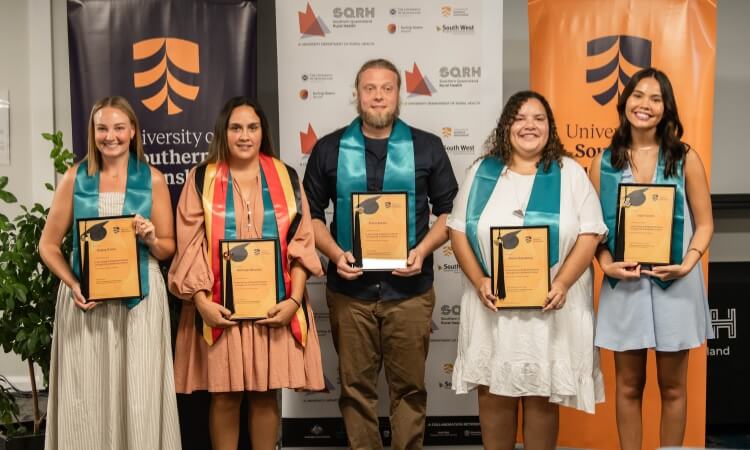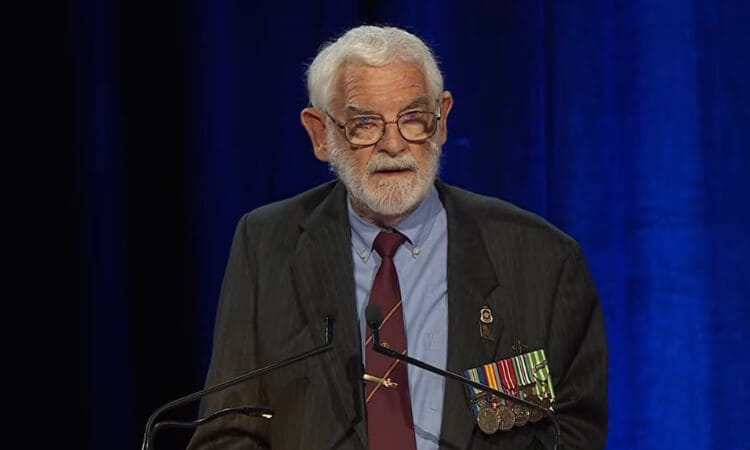Beyond the canvas: A global movement for mental health and social change

In a world where art often speaks louder than words, UniSQ alumnus Dr Ally Zlatar is amplifying voices that have long gone unheard.
Named in Forbes 30 Under 30 Asia list and recognised in UN Women’s 30 for 2030 initiative, Zlatar’s achievements are more than personal accolades – they are milestones in a movement.
Her pioneering arts-activism project, The Starving Artist, has transformed from a deeply personal journey into a global platform for mental health advocacy and social justice.
“Being named in Forbes 30 Under 30 Asia is truly an honour,” Zlatar said.
“Not just personally, but for what it signifies. It represents a growing recognition that art can be a legitimate and powerful form of activism.”
Founded in 2017, The Starving Artist began during a time when Zlatar was navigating her own experience with an eating disorder.
Feeling alienated by traditional medical narratives, she turned to art to articulate what words could not.
“For me, art wasn’t just an outlet; it was a language when I didn’t have the words,” Zlatar said. “It allowed me to express the fragmentation, confusion, and rawness of what I was experiencing.”
Since then, her work has reached more than 50,000 people across the globe.
Through exhibitions, creative publications, digital reflection tools, and partnerships with organisations like UN Women, Orygen, Creative Scotland, and Arts Council England, The Starving Artist has become a beacon for inclusive, culturally relevant mental health support.
Recent innovations include immersive VR exhibitions and adaptive reflection card tools designed to make mental health resources more accessible to diverse communities.
Zlatar’s academic foundation is as multidisciplinary as her advocacy. Her Doctor of Creative Arts from the UniSQ explored eating disorders through the lens of contemporary art.
“I was drawn to UniSQ because of its interdisciplinary approach and its openness to research that straddles the creative, academic, and activist realms,” she said.
“My supervisors – Dr Beata Batorowicz, Dr Amy Mullens and Dr Carol Du Plessis – genuinely believed in the power of arts research to effect real-world change.”
At the heart of her success is a desire to elevate collective voices – a philosophy she shares with aspiring change-makers.
“First: your story matters,” she said. “Second: collaboration is powerful.”
“Social change is a collective effort. I truly believe that real change takes time – if it was easy, it would already be done. So find your community, your co-dreamers.”
Looking ahead, Zlatar shows no signs of slowing down. She’s focused on growing The Starving Artist into a leading global organisation, with an emphasis on child-focused and disability-inclusive art interventions.
She also hopes to take on more teaching and mentorship roles, empowering the next generation of creative changemakers.
“I’m deeply grateful for what I’ve achieved so far, but I still feel like I’m just getting started,” she said.
Through art, activism, and academia, Ally Zlatar is challenging stigma, building empathy, and reshaping how the world thinks about mental health and social justice – one brushstroke at a time.
Learn more and connect with Ally Zlatar: starvingartist.cargo.site | Instagram | LinkedIn


